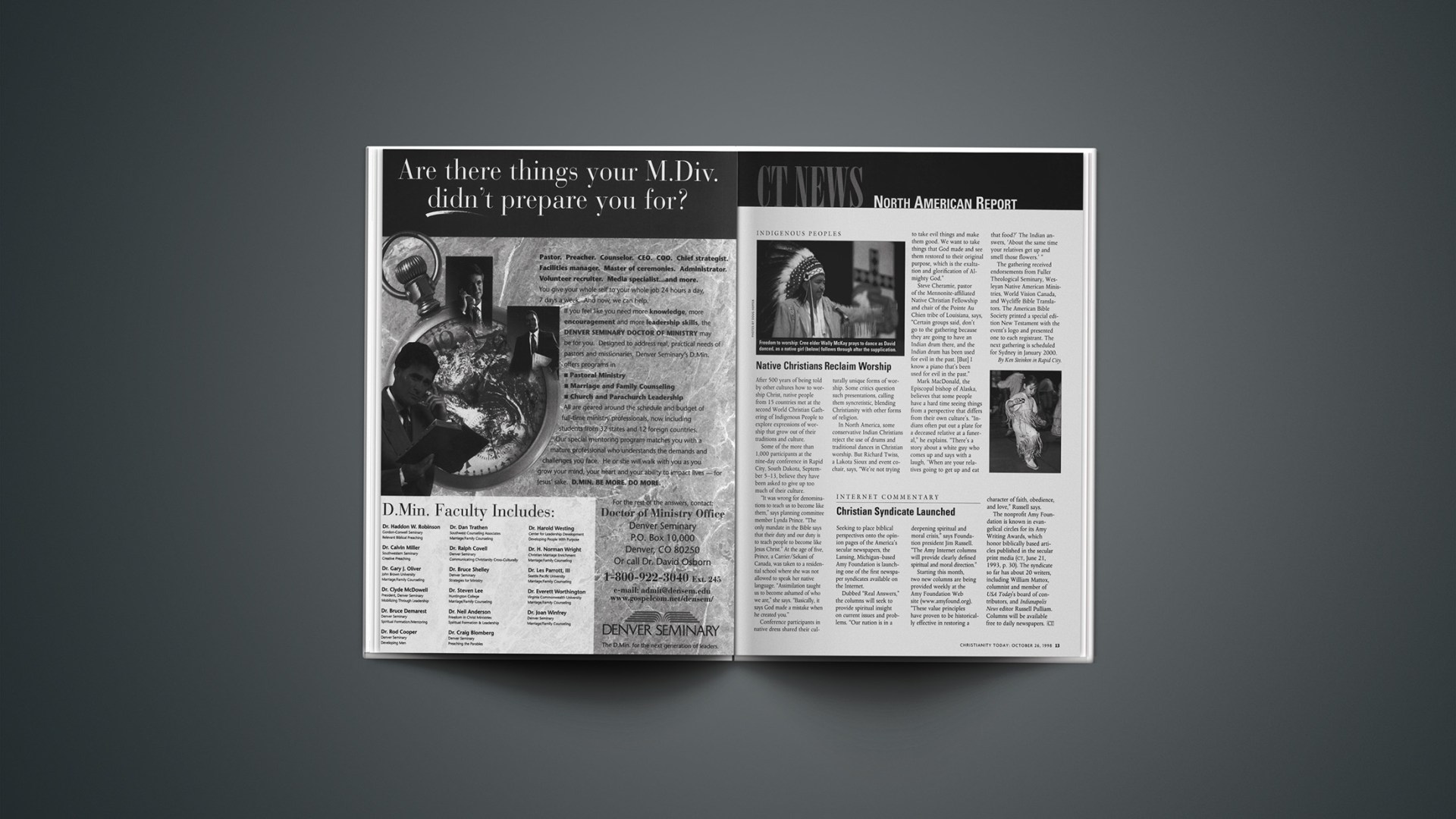After 500 years of being told by other cultures how to worship Christ, native people from 15 countries met at the second World Christian Gathering of Indigenous People to explore expressions of worship that grow out of their traditions and culture.
Some of the more than 1,000 participants at the nine-day conference in Rapid City, South Dakota, September 5-13, believe they have been asked to give up too much of their culture.
“It was wrong for denominations to teach us to become like them,” says planning committee member Lynda Prince. “The only mandate in the Bible says that their duty and our duty is to teach people to become like Jesus Christ.” At the age of five, Prince, a Carrier/Sekani of Canada, was taken to a residential school where she was not allowed to speak her native language. “Assimilation taught us to become ashamed of who we are,” she says. “Basically, it says God made a mistake when he created you.”
Conference participants in native dress shared their culturally unique forms of worship. Some critics question such presentations, calling them syncretistic, blending Christianity with other forms of religion.
In North America, some conservative Indian Christians reject the use of drums and traditional dances in Christian worship. But Richard Twiss, a Lakota Sioux and event cochair, says, “We’re not trying to take evil things and make them good. We want to take things that God made and see them restored to their original purpose, which is the exaltation and glorification of Almighty God.”
Steve Cheramie, pastor of the Mennonite-affiliated Native Christian Fellowship and chair of the Pointe Au Chien tribe of Louisiana, says, “Certain groups said, don’t go to the gathering because they are going to have an Indian drum there, and the Indian drum has been used for evil in the past. [But] I know a piano that’s been used for evil in the past.”
Mark MacDonald, the Episcopal bishop of Alaska, believes that some people have a hard time seeing things from a perspective that differs from their own culture’s. “Indians often put out a plate for a deceased relative at a funeral,” he explains. “There’s a story about a white guy who comes up and says with a laugh, ‘When are your relatives going to get up and eat that food?’ The Indian answers, ‘About the same time your relatives get up and smell those flowers.’ “
The gathering received endorsements from Fuller Theological Seminary, Wesleyan Native American Ministries, World Vision Canada, and Wycliffe Bible Translators. The American Bible Society printed a special edition New Testament with the event’s logo and presented one to each registrant. The next gathering is scheduled for Sydney in January 2000.
Copyright © 1998 Christianity Today. Click for reprint information.










